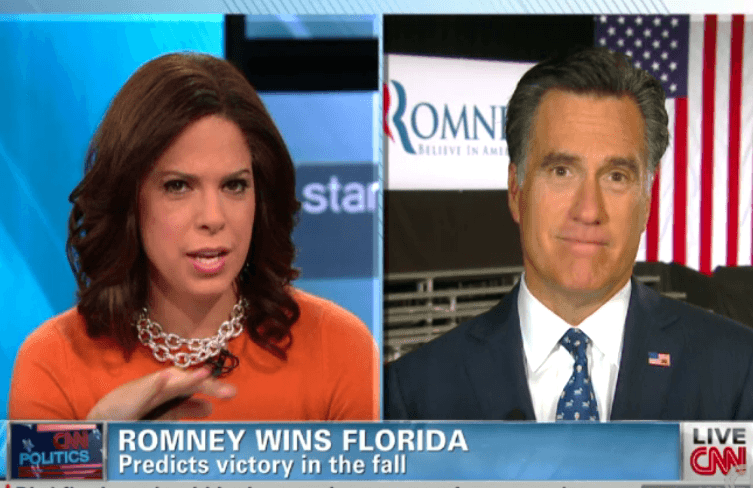Romney’s comments about the poor ignite discussion of social mobility
Mitt Romney in an interview with CNN said he wasn’t concerned with the poor and very poor, comments that immediately ignited controversy. (Photo from CNN video.)
Mitt Romney stepped in it last week when he declared that he’s “not concerned about the very poor.”
To be clear, he was trying to talk about how his focus would be on building up the middle class, and he said if there were a problem with the safety net for the very poor, he would fix it. But his comments immediately came off as tone deaf and caused a storm of controversy for the Republican presidential candidate and front-leader.
But Romney’s message, focusing on the middle class at the expense of the poor, resonates with many middle class Americans. One individual, Kate, who declined to give her last name, said unless other factors like mental illness crop up, the programs are in place to give the very poor the critical services they need, like medical insurance and food stamps.
“The middle class is providing largely for them,” Kate said. “We also … support the upper classes. This done through social services to employees of large corporations who are underpaid. We see it as a subsidy we provide to the large corporations.”
Kate said she feels politics talk out of both sides of their mouth when seeking to curry support with the middle class — and she puts Romney in that same camp. But she and her husband feel disillusioned by what Obama has accomplished for the middle class and are looking for someone else to see if he will do more for the middle class.
“We hope that Mitt Romney will be the Republican nominee and if he is, we plan on voting for him, because we don’t know what else to do,” Kate said.
Tiziana Dearing is CEO of Boston Rising, an antipoverty non-profit organization, said that anger and frustration is common to many Americans.
“We are seeing a tightening of the screws on a growing number of Americans in terms of their ability to have economic flexibility,” Dearing said.
But for the poor, the safety net Romney talks about is just the bear minimum of support, Dearing said. It’s a way to keep people from starving, don’t go without healthcare. But it’s not a strategy to get them up and into the workforce — and participating in the American dream.
Increasingly, though, the middle class are experiencing the same issues of the poor and very poor, Dearing said.
“We call everyone a member of the rising class and increasingly what’s happening, the frustration people are having, is you can’t rise, you can’t make happen for yourself and your family what you want to,” Dearing said. “You want you. You’re trying. You’re working hard and you can’t seem to get ahead.”
Dearing said what America needs to do is focus on the American dream and enabling Americans to live the American dream, rather on divisive issues of class warfare, we can get America prospering again.
“If we can go back to focusing on why those building blocks are missing and what we need to do, we can get out of whether it’s the middle class, the lower class, the poor, the very poor,” Dearing said. “That’ll get us out of some of the underlying race tones that are going on with that as well. It puts us back in the same boat together.”
And, increasingly, the safety net we’ve created doesn’t do much to propel the poor and very poor forward.
“It’s a soft net. If you think about landing in a soft net, you get tangled in it. It’s not a trampoline,” Dearing said. “What we need is a trampoline.”
